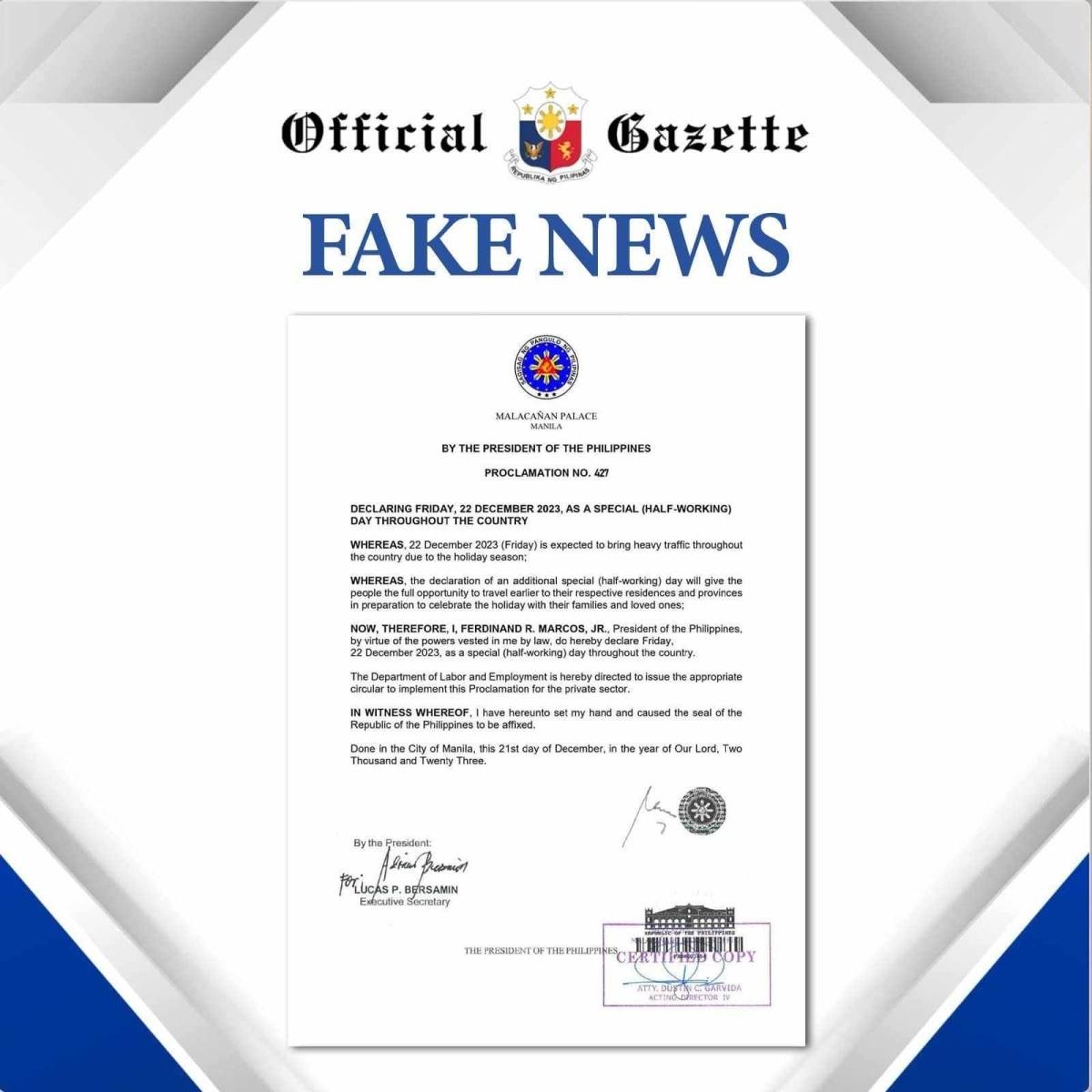Malacañang, the official residence and workplace of the President of the Philippines, has denied the existence of a document declaring December 22 as a “special half-working day” across the country. Presidential Communications Office Secretary Cheloy Garafil dismissed the circular, stating that it was fake and not approved by President Ferdinand Marcos Jr.
The document, which circulated online, claimed that President Marcos issued Proclamation 427 to suspend government work early on December 22. The alleged reason behind this decision was to allow state employees to avoid heavy traffic as people traveled out of town for the Christmas holidays.
However, the Official Gazette, the government’s official publication, cautioned the public against sharing unverified information. They emphasized that the proclamation lacked official verification or recognition by the government. The Palace urged people to rely on official government sources for accurate information and refrain from disseminating unverified claims.
It is important to note that December 25, Christmas Day, is the only regular holiday during this period. December 26, on the other hand, has been declared a special non-working day by the President. This decision aims to provide people with the full opportunity to celebrate Christmas with their loved ones and promote domestic tourism.
While the disputed document caused confusion and speculation, it is crucial to rely on verified sources to obtain accurate information. In today’s digital age, misinformation can spread rapidly, leading to unnecessary panic or disruption.
The government’s warning against sharing unverified claims highlights the importance of responsible information sharing. It is essential for individuals to exercise caution and verify the authenticity of information before sharing it with others, especially through social media platforms.
This incident also serves as a reminder of the prevalence of fake news and the need for critical thinking skills. In an era where information is readily available at our fingertips, it is crucial to be discerning consumers of news and to question the credibility of sources.
Furthermore, this incident sheds light on the challenges faced by governments in managing and dispelling rumors. The speed at which information spreads online requires swift action to counter false narratives and ensure accurate information reaches the public.
In conclusion, the disputed document claiming a special half-working day in the Philippines on December 22 has been disowned by Malacañang. The government has emphasized the importance of relying on official sources for accurate information and cautioned against sharing unverified claims. It is crucial for individuals to exercise caution and critical thinking when consuming and sharing information, particularly in the age of fake news.







